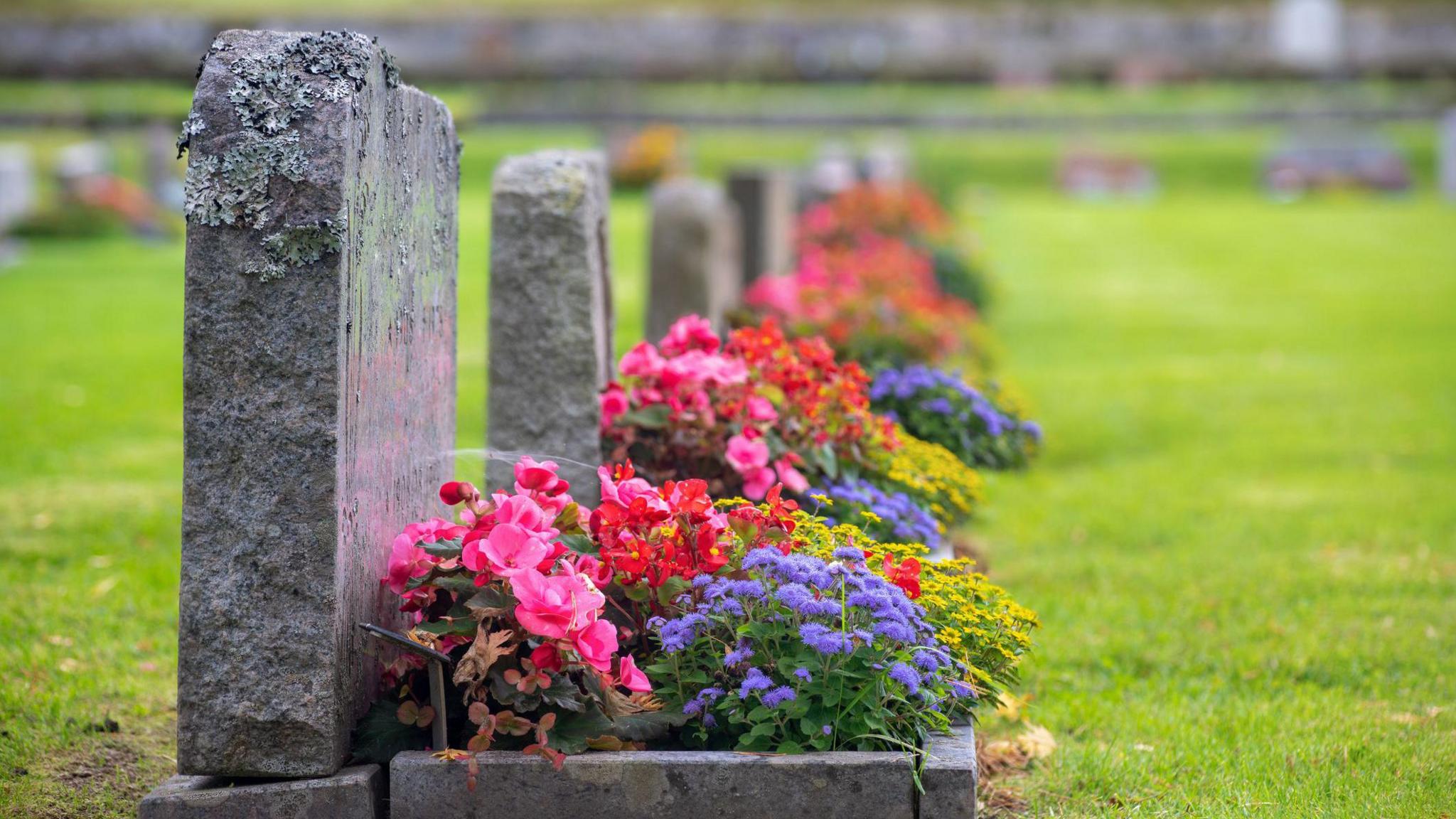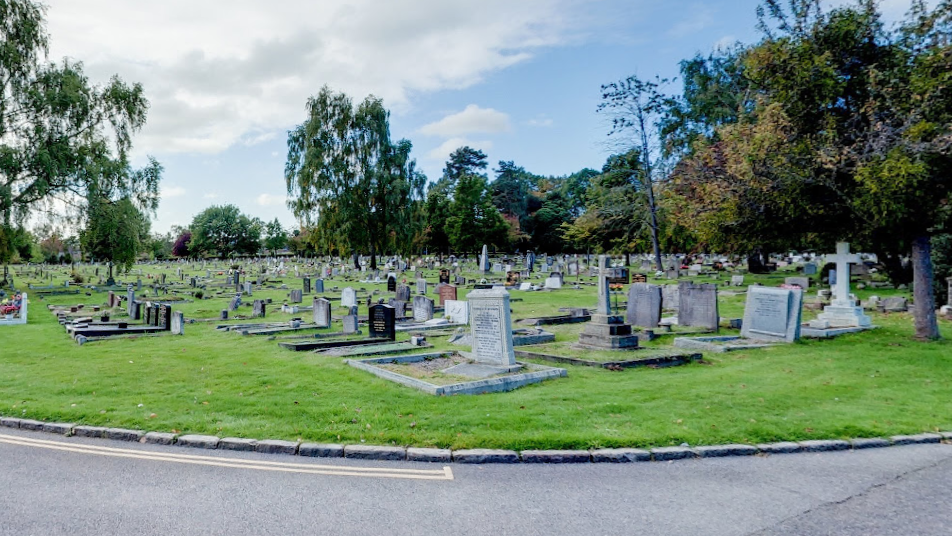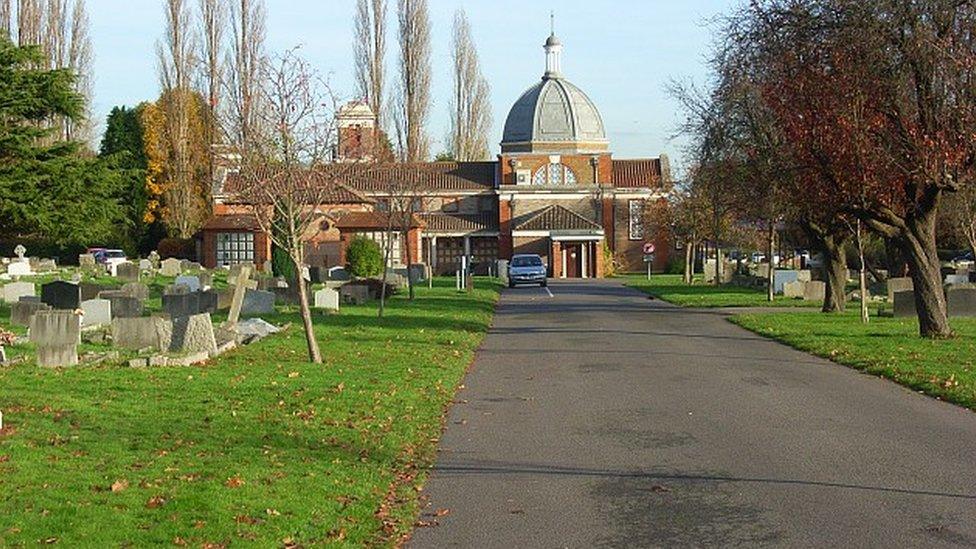Allotment site could become graveyard

It is estimated about one in five Reading residents would choose to be buried rather than cremated
- Published
Plots of land used for growing vegetables and flowers could be turned into graves under plans to create more burial space in a town.
Reading Borough Bouncil previously warned the borough would likely run out of room for new burials by 2030, external.
But using Henley Road allotments would delay this for about 14 years, according to the authority.
The land is "reserve cemetery ground", meaning it was only being used for allotments until more burial space was needed.
Returning the allotments to their "original intended use" was the most realistic and affordable solution, the council said.
The plot would provide about 2,300 new graves.

Repurposing Henley Road allotments will free up room for new graves until 2044
Ellie Emberson, lead councillor for corporate services and resources, said open land in a tight, urban area like Reading was rare.
"While there is no legal obligation for any council to provide burial space, we are clear that it is a service we want to be able to continue to offer to residents in Reading," she said.
"The council is very aware that for tenants themselves, allotments are not just plots of land and can often represent many years of hard work."
A consultation with allotment holders, residents and faith groups is being proposed.
Allotment holders could be offered rent-free periods until they need to vacate, and assistance if they choose to move their greenery to another site.
Should plans go ahead, the council said they would be given "considerable notice and time" to relocate over the next two or three years.
Get in touch
Do you have a story BBC Berkshire should cover?
You can follow BBC Berkshire on Facebook, external, X (Twitter), external, or Instagram, external.
Related topics
- Published31 August 2023
